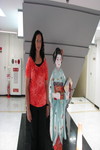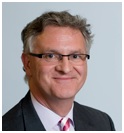Biography
Trevor Griffiths studied medicine at Oxford University. He was a pioneering UK family physician for 25 years, where he developed Emotional Logic as a lifelong learning approach to promote physical health and social wellbeing. He founded the Emotional Logic Centre, and now full-time trains tutors internationally who promote healthy adjustment to change by character development in schools, healthcare, business and church settings. He has developed and published theory to account for the rapid changes in personal identity and social character that can follow when understanding how emotions have a social, systemic purpose.
Research Interest
Resilience is defined as the constructive ability to manage multiple small losses and worries about loss that can accumulate in any social setting within setbacks, disappointments and hurts. These un-named ‘hidden losses’ each start their own emotional loss reaction, all of which occur simultaneously when the stressing situation is remembered. Tools have been developed (card sorting, and Loss Reaction Worksheets) that can kinesthetically map the resulting emotional chaos. Habitual or fleeting ‘whirlpools of emotion’ can thus be identified, which make people feel stuck in the situation with tension, distress or confusion, and generate behavioral reactions. These may be diagnosed as illness, bad social character or personality disorder, and may lead people to adopt a victim status to justify their behavior, or to seek help to find a way out. The Emotional Logic Centre teaches that these are adjustment reactions complicating normal and healthy grieving for un-named values. Emotional Logic is a lifelong learning approach to improve understanding, self-respect and strength of character, by which people learn a solution-focused, action-planning way out of the identified emotional chaos. It provides an approach to adjustment that says there are NO negative emotions, only unpleasant ones that have useful purposes to activate adjustment in social settings. The assertive action plan removes the victim status, and enables exploration of new ways to live by renewed, empathic relationship building. Resilience thus becomes a teachable life skill to manage setbacks, disappointments and hurts constructively by conversational methods.
Biography
George S. Everly, Jr., PhD, ABPP is an award-winning author and researcher. He holds faculty appointments at the Johns Hopkins University and at Loyola University in Maryland. He has served on the adjunct faculty of the Federal Emergency Management Agency and the FBI’s National Academy at Quantico, Virginia. Dr. Everly holds Honorary Professorships at the Universidad de Flores, Buenos Aires, Argentina and Universidad de Weiner, Lima, Peru. He was an advisor to the Hospital Authority of Hong Kong. Dr. Everly is co-founder of the International Critical Incident Stress Foundation, a non-profit United Nations-affiliated public health and safety organization. He was formerly Distinguished Visiting Professor, Universidad de Flores (Argentina), and was Senior Research Advisor, Social Development Office, Office of His Highness, the Amir of Kuwait, State of Kuwait. Prior to these appointments Dr Everly was Chief Psychologist and Director of Behavioral Medicine for the Johns Hopkins' Homewood Hospital Center. He is the author, co-author, or editor of 20 textbooks and over 100 professional papers. Among his texts are Fostering Human Resilience (Chevron, 2013), The Resilient Leader (DiaMedica, 2010), The Resilient Child (DiaMedica, 2009, Gold Medal Winner), Integrative Crisis Intervention and Disaster Mental Health (Chevron, 2008), and Mental Health Aspects of Disasters: Public Health Preparedness and Response (Johns Hopkins, 2005).
Research Interest
Biography
Dr. Liat Korn is a senior researcher and lecturer in the field of Medical Sociology. Her doctoral thesis (2005) was on “Water Pipe Smoking among Teen-agers in Israel: A sociological Analysis†from Bar-Ilan University, Israel. In her post-doc she studied and conducted the Israeli HBSC (Health Behavior of School-aged Children) and HBSC-ME (HBSC in the Middle East). She published more than 20 papers in reputed journals and conducted several studies including risk behaviors among teenagers and young adults in Israel. She offers courses and seminars in Sociology; Medical Sociology, Epidemiology, Health Promotion and Risk Behavior
Research Interest
1. Post-traumatic stress and world assumptions – The effects of religious coping. 2. Resilience following exposure to traumatic events- The moderating effect of religiosity on post trauma amongst students studying under a high level of terror event exposure









